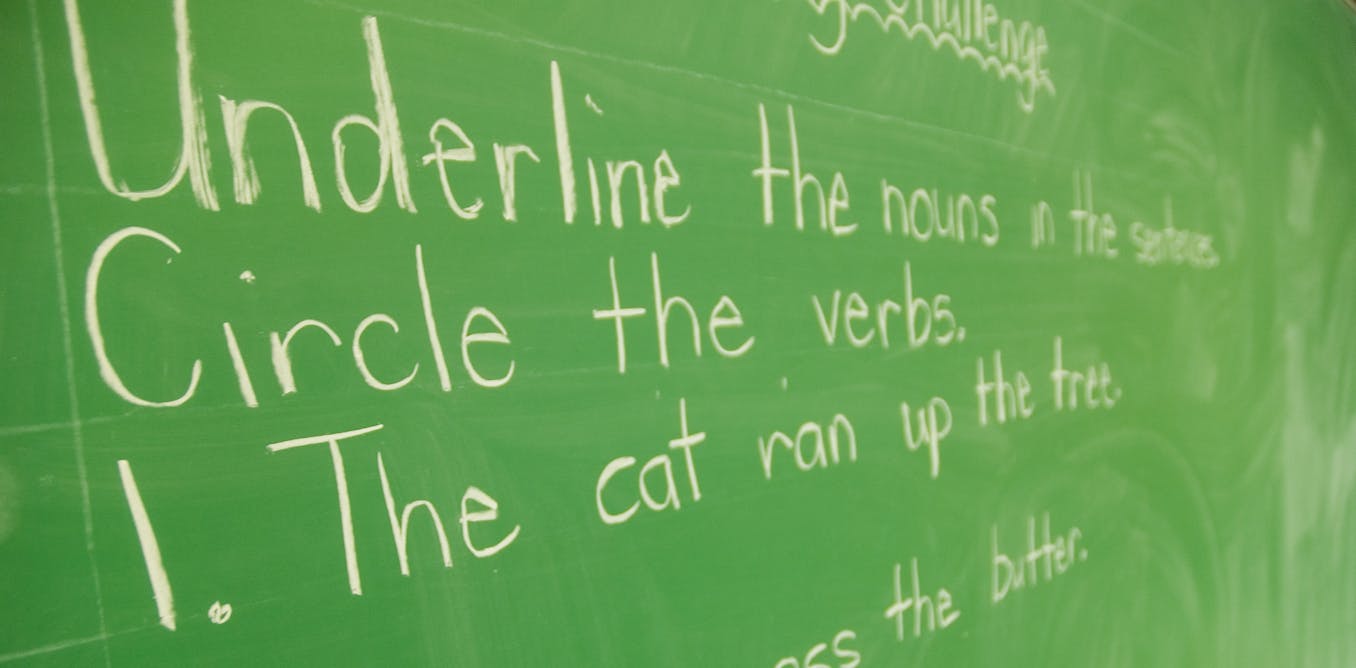‘To be or to be?’ Why this fundamental concept is so difficult for learners of Spanish
Spanish has two ways of saying “be”, which forces language learners to see the world in a whole new way.
The Conversation > Grammar
Do languages become less complex with more new adult speakers? Research shows it’s not that simple
The idea a language should grow simpler if people need to learn it as adults has an intuitive appeal. But an analysis of more than 1,200 languages shows this doesn’t quite stack up.
The Conversation > Grammar
Learning grammar is just as important as it always was but the way we teach it has changed
Grammar is the backbone of any language and kids need to understand it to communicate effectively.
The Conversation > Grammar
AI is changing scientists’ understanding of language learning – and raising questions about an innate grammar
Linguists have long considered grammar to be the glue of language, and key to how children learn it. But new prose-writing AIs suggest language experience may be more important than grammar.
The Conversation > Grammar
We analysed NZ Twitter users’ language during lockdown – with surprising results
The grammar of persuasion can be subtle – but pro-lockdown tweeters tended to be more direct and less conciliatory than those they opposed.
The Conversation > Grammar
Our emotions and identity can affect how we use grammar
A better understanding of language and its neuroscientific basis would help us handle linguistic issues throughout our lives.
The Conversation > Grammar
5 ways to teach the link between grammar and imagination for better creative writing
It isn’t a matter of choosing between teaching grammar or teaching students to use their imagination in their writing. In fact, it makes sense to show them how grammar can enhance their creativity.
The Conversation > Grammar
To succeed in an AI world, students must learn the human traits of writing
Our children should no longer be taught formulaic writing. Writing education should encompass skills that go beyond the capacities of artificial intelligence.
The Conversation > Grammar
Saying more with less: 4 ways grammatical metaphor improves academic writing
Grammatical metaphor is different to what we understand to be “metaphor”. It’s a way of converting words and shortening clauses, so more information can be packed into fewer characters.
The Conversation > Grammar
4 ways to teach you're (sic) kids about grammar so they actually care
Grammar is a set of tools to make meaning rather than a set of rules to follow. The difference is in how we teach it.
The Conversation > Grammar
Why emojis and #hashtags should be part of language learning
The conventions used in texting and tweeting are fundamentally altering how people communicate, but many language apps still rely on old-school English-language grammar.
The Conversation > Grammar
Five common words we’re all using incorrectly
Pedants should reach for their red pens now.
The Conversation > Grammar


















